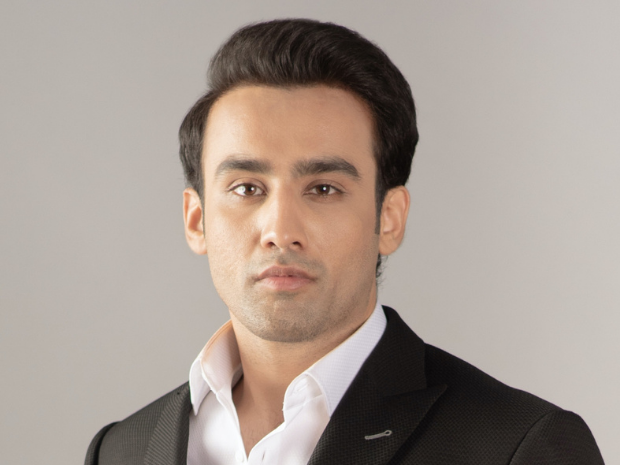
- Programme studied: MSc Social Innovation and Entrepreneurship
- Year of Graduation: 2019
- LinkedIn profile
Meet our July Alum of the Month, Bilal Bin Saqib. Bilal is a Forbes 30 Under 30 social entrepreneur and the Co-Founder of One Million Meals and Tabaya Organisation. He has recently been awarded a Points of Light Award by the Prime Minister, Boris Johnson, for his work with One Million Meals, feeding over 10,000 vulnerable people and key workers in the UK during the pandemic.
What inspired you to study your Master’s in Social Innovation and Entrepreneurship at LSE, and what impact has this had on your career journey?
The course offered some amazing insight and practical experience, which was very appealing. LSE facilitated personal growth in an enabling environment, where I could explore and further enhance my skillset and abilities around some very brilliant and hardworking minds.
The course resonated with my interests because as an individual, I have always looked for socio-economic problems that I can solve. I learnt to effectively identify and analyse those problems to reach ground-breaking solutions. It also equipped me with the skills and expertise that I use to make an impact through social innovation projects that I am part of.
You have recently been awarded the Points of Light Award by the Prime Minister, Boris Johnson, for delivering over 100,000 meals to key workers and vulnerable people during COVID-19. Tell us more about ‘One Million Meals’ and its impact on the UK?
I co-founded the One Million Meals initiative along with a team of other extremely hardworking co-founders in March 2020, as an emergency response to the COVID-19 crisis in the UK. Running the campaign was a team effort but my personal contribution was to operations, marketing, and the resource management function of the initiative.
Working with food platforms, food chains and restaurants to provide free nutritious meals, NHS staff and other key workers, including police, school staff, firefighters were served. In addition to that, being backed by football legend David Beckham and boxer Amir Khan helped to amplify efforts of the initiative. Vulnerable families financially impacted by the pandemic and homeless people were also provided with necessary sustenance through One Million Meals.
To date, over 100,000 meals and beverages in more than 200 locations through 47 hospitals, trusts and food banks have been provided.
In 2016, you co-founded the social enterprise ‘Tayaba Organisations’, providing clean water solutions to vulnerable communities in Pakistan. Tell us more about H2O Wheels and your inspiration?
In my religion, Islam, it is always said “The best gift or form of charity is giving someone water to drink". These words resonated with me so deeply, that it ultimately culminated into founding Tayaba Organisation with a vision and mission to alleviate the plight of the water-deprived communities.
In line with some of the key United Nations Sustainable Development Goals, the concept of H2O wheel came into being in Burkina Faso back in 2016. There, when I came across water rollers used by women, giving me a vivid visual of far greater struggles that rural women and children back home were severely affected by. With a new-found need to support and alleviate the plight of the water-deprived population, we expedited work to design an intervention model - Tayaba Organisation’s H2O wheel.
H2O stands for “Help 2 Others” which is a specially designed water-carrying device tailored as a simple and effective product that helps transport safe water intended to remove the burden off the shoulders for whom obtaining water is a daily struggle. The H2O wheel carries up to 40 liters of water, halves travel time and has been successfully decreasing health problems in women. The idea has transformed over 40,000 lives in rural areas till date with the distribution of over 6,500 H2O wheels which have eased accessibility and transportation while unlocking economic opportunities.
The project has continued to scale even post COVID-19, positively impacting the social, infrastructural, economic, health and educational conditions of the water-deprived communities.
What is next on the horizon for you, where will you be focusing your efforts next?
I’m working on my own projects, we are developing new partnerships with Tayaba and plan to distribute around 50,000 more H2O wheels in the next five years through the help of advocacy campaigns, community mobilisation and increased awareness about the cause.
This year we are celebrating the 125th anniversary of LSE. What is your fondest memory whilst you were studying with us?
My fondest memory is no doubt being elected as the sabbatical officer and getting the opportunity to represent student voices. In this role, I hosted several events and met some amazing personalities at LSE. To mention a few, Alexandre Arnault, Sadghuru, François-Henry Bennahmias CEO of Audemars Piguet. My most memorable event would be when I asked Bennahmias on how he would go about selling me a £280,000 watch and he ended up inviting me to HQ in Geneva where I was able to interview him in person.